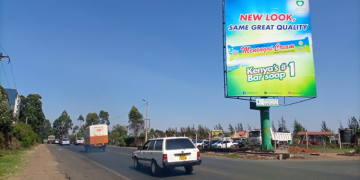Nandi Hills Member of Parliament (MP) Bernard Kitur has tabled a proposal for a Health Promotion Levy aimed at tackling the rising burden of non-communicable diseases.
The move is aimed at curbing rising cases of non-communicable diseases (NCDs) such as diabetes and obesity, and would impose a fresh cost on sugar-sweetened beverages sold in the country.
According to the proposal, the levy would target drinks with more than 4 grams of sugar per 100 millilitres.
However, beverages below this threshold would be exempt.
For those exceeding the limit, locally produced drinks would be charged Ksh1 per gram of sugar per 100ml, while imported soft drinks would be taxed double at Ksh2 per gram.
Furthermore, products, such as 100% fruit juices without added sugar, dairy beverages with at least 75% milk content, and beverages meant for export, would not be affected by the tax.
“The increasing consumption of sugar-sweetened beverages (SSBs) in Kenya has contributed significantly to rising cases of obesity, diabetes, and other non-communicable diseases (NCDs).
“To mitigate this public health crisis, we propose the introduction of the Health Promotion Levy in the Soft Drinks Industry (HPL),” the proposal reads in part.
Also Read: Kenyan Study Tests Three Types of Warning Labels on Food
MP Bernard Kitur Explains Where the Money Will Go
According to the MP, the proposed levy is more than just a financial mechanism, but a public health intervention.
Moreover, he explains that the funds collected would go toward health promotion activities, including school feeding programs, awareness campaigns on NCDs, and subsidies for healthier alternatives.
“This levy aims to reduce sugar consumption, encourage healthier product reformulation, and generate revenue to support public health programs,
“The levy will be applied to manufacturers and importers of sugar-sweetened beverages, ” explains the proposal.
The Kenya Revenue Authority (KRA) will be tasked with collecting the Health Promotion Levy in collaboration with other regulatory bodies.
Under the proposed structure, KRA will implement the levy through its existing excise duty collection infrastructure, ensuring seamless integration with current taxation systems.
Consequently, this means manufacturers and importers of sugar-sweetened beverages will be required to declare the sugar content in their products during registration, production, or importation processes.
This will allow the authority to calculate and collect the levy based on the excess sugar per 100 millilitres above the exempt threshold of 4g/100ml.
Also Read: How the Food You Eat Everyday is Slowly Killing You
Kenya’s Nutrient Profile
The Ministry of Health is planning to introduce a front-of-pack labelling system that will rate packaged foods and non-alcoholic beverages based on their nutritional value.
Although the current packaging regulations require ingredient listings, they are often difficult for consumers to interpret. Therefore, the new system aims to make key nutrition information more accessible and understandable at a glance.
The label formats will include;
Red-Green Octagon (RG) – This label uses colour coding to show nutrient levels. Red indicated high (unhealthy) levels of sugar, salt, fat, or saturated fat, while green indicated acceptable (healthier) levels.
Red-Green Octagon with Icons (RGI) – This format is built on the RG label by adding intuitive icons (e.g., a spoon for sugar) and abbreviations (F for fat, SF for saturated fat) to further aid comprehension.
Black Octagon Warning Label (WL) – This label only appeared on products that exceeded safe thresholds, displaying a clear “high in” warning message for sugar, salt, or fat.
Follow our WhatsApp Channel and X Account for real-time news updates.











































































